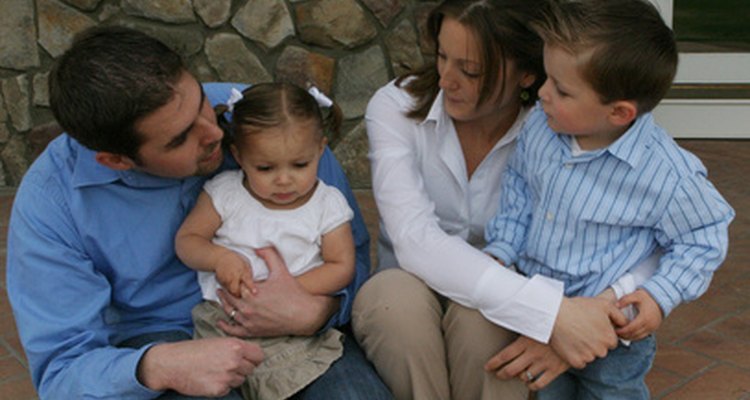
California child protection laws aim to keep children as safe as possible while also keeping their families together. But sometimes, it's in a child's best interest to separate them from their family, if doing so would be necessary for their welfare and safety. That's where Child Protective Services (CPS) steps in: the agency's job is to determine when it's in the child's best interest to change their living situation.
The duties of CPS are to determine and investigate problems in families and quickly intervene when family crisis occurs to ensure the safety of children. CPS provides services such as foster home placement, and parental training to families of abused children.
Definition of Child Abuse
California law recognizes that child abuse happens when a child gets physically hurt by intention, receives cruel and inappropriate punishment, exploited sexually, or when the child does not receive adequate food, shelter, clothing, medical care or left in dangerous conditions and environments. California law does not specify an age requirement as to when a child can be left at home alone although parents or caretakers should ensure that the child is mature enough to avail of help if any emergencies come up. California Welfare and Institutions Code Section 300(a) states that spanking to the buttocks is not child abuse unless it causes physical injury.
California law intends to uphold the child-rearing rights by parents, but child abuse is against the law and the state can intervene to keep children safe.
Reporting Child Abuse
Under California law, minors should be protected from sexual abuse, exploitation and any violations should be reported to Child Protective Services. California Penal Code 11172 protects persons who report child abuse to Child Protective Services from civil or criminal liability unless the reports are found to be fraudulent. Family Code 3027.1 states that if the reporter is a fraud, then the court may fine him.
In California, Child Protective Services will not divulge specific information about its investigation but may share general information and the status of the case being investigated. Abuse and Neglect Reporting Act, Penal Code 11167(d)(1) states that the identity of all persons reporting shall be kept confidential and if a report is received by the wrong party, the report should be destroyed.
Child Protective Services Duties
Child Protective Services Agency’s primary responsibility is to keep the children safe while keeping families intact whenever possible. Under California law, concerned individuals must meet and cooperate with the investigator or CPS worker. CPS Agency is responsible for interviewing concerned individuals, obtaining physical evidence, medical and school records, and investigating the case. To ensure that the child can talk to someone without intimidation or pressure, the investigator can interview the child while in school without asking for parental permission.
The social worker will make recommendations on how to keep the child safe. CPS Agency is authorized to arrange for emergency temporary foster care and to prepare plans to unite the child with his family in a safe environment.
Related Articles

Laws About Leaving a Child Home Alone ...

Kansas Runaway Laws

How Does Temporary Guardianship Work?

How to File a Complaint on a Child ...

How to Deal With Inconsiderate Adult ...

How to Find Daycare Inspection Reports ...

Federal Grants for Married Couples

How to Make a Complaint to Mississippi ...

Help With Funeral Payments for ...

How to Report Elderly Abuse in Tennessee

How to Petition to Terminate the ...

How to Get a Verbally Abusive Boyfriend ...

How to Obtain Guardianship of an Adult ...

Child Runaway Laws

How to Get Your Kids Back From CPS

New York State Supervised Visitation ...

Programs to Take Care of a Disabled ...

Can a Notary Republic Marry People?

How Much Are Monthly Disability ...

Health & Safety Policy for Child Care ...
References
Writer Bio
Based in Hawaii, Cristina Hagan has been writing since 2008. She has worked as a technical writer for Toyota and her articles appear on eHow. Hagan is an early childhood educator registered with Hawaii Careers with Young Children. She holds a Bachelor of Science in computer science from California State University, Los Angeles.
Photo Credits
family image by Linda Mattson from Fotolia.com